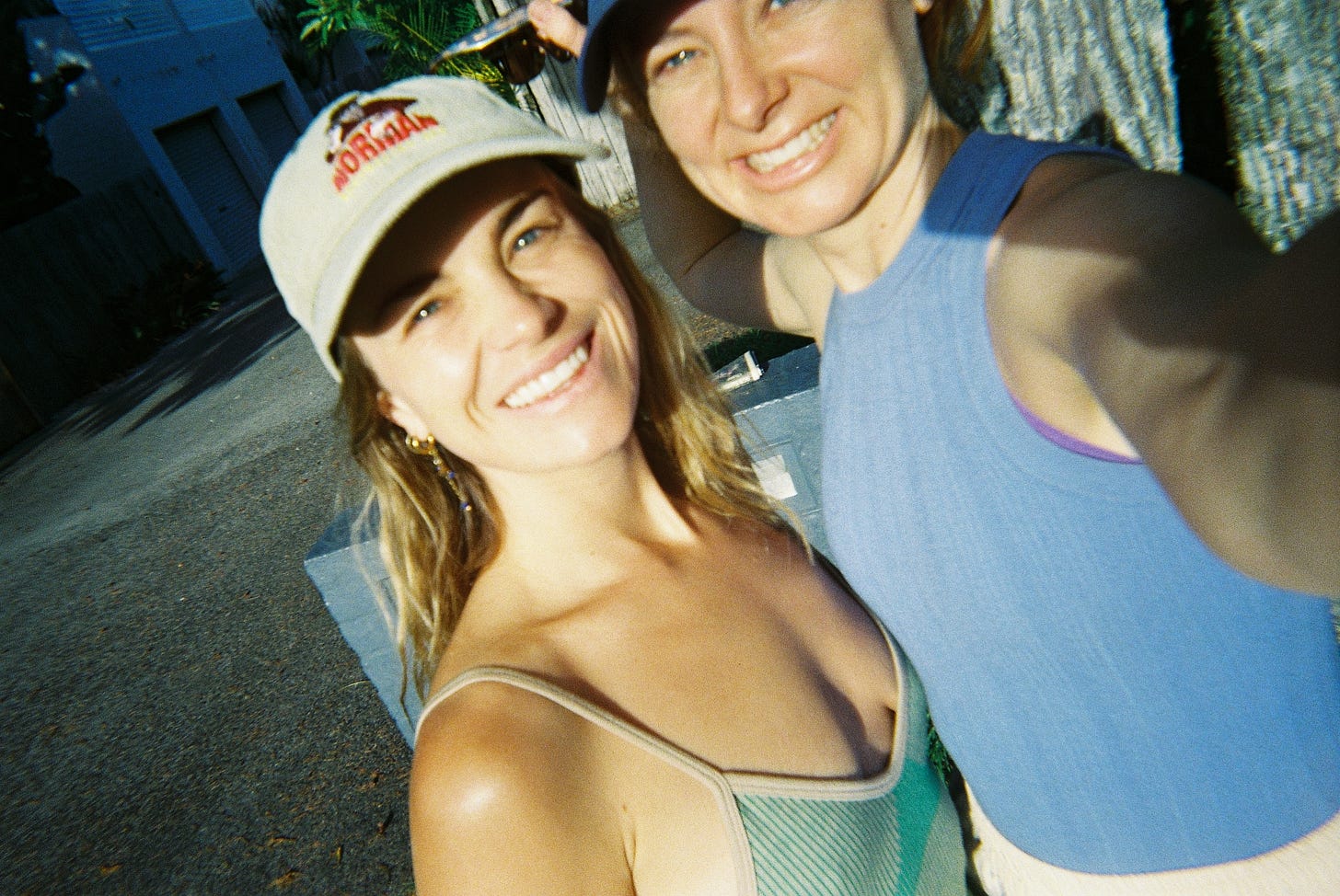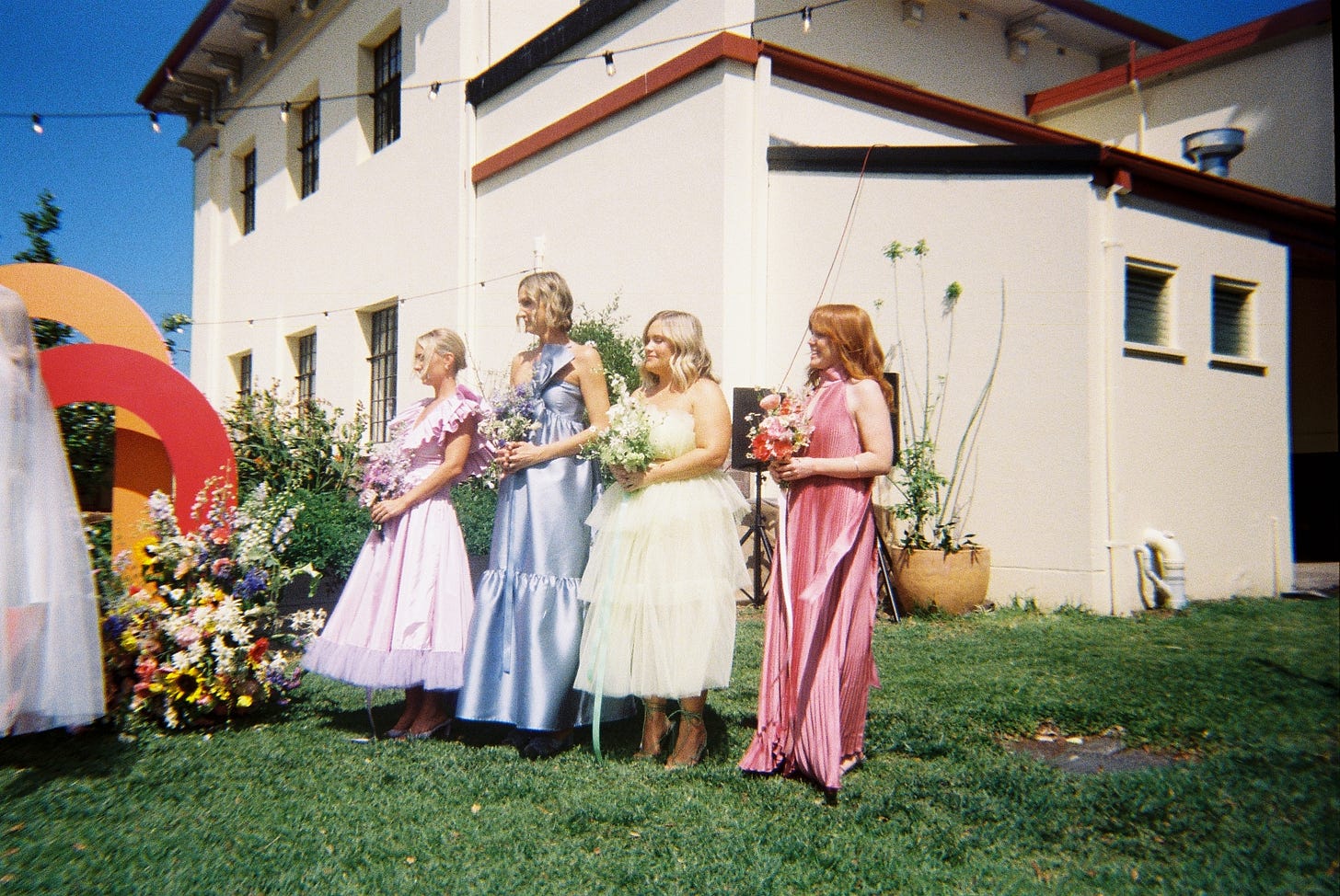Can self-work be another way to avoid the honest truth?
+ this week's pod: sexual fantasies, leaving the corporate world & intuition vs. anxiety
Read Time: 7 min
I am consistently inspired by the depths women are willing to go to look at themselves in connection.
I am surrounded by fearless warrior-esses who turn towards the mirror when their relational field echoes that a deeper truth is at play… that something beyond the veil of their ego is ready to be touched.
But, I wonder…
When does self-work become a crutch?
Recently, a couple I follow on social media — known for openly sharing the ups and downs of their marriage online — announced that their relationship agreement had shifted… or, as they described it, “evolved.”
They had chosen to bless each other to explore love outside the container of their marriage — he now had a girlfriend, and she had recently ended a year-long relationship with a lover of her own.
While the new configuration resembled polyamory, they referred to it as “radical monogamy in the field of erotic mystics” — a modern take on monogamy, where lifelong commitment remained the central pillar (but was expanded to include others), and where classical relationship conditioning was served up for dissection.
They had also recorded a podcast.
Naturally, I couldn’t type the title into Spotify fast enough.
But as I listened to four indisputably articulate people — the married couple, the lover of the male counterpart, and a man who appeared to be their psychologist/philosophy teacher — unpack the nuance of this relational reconfiguration, I counted the number of times I heard the words “evolve,” “process,” and “expand.”
It was a lot.
I tried to keep my judgements at bay, but they began to ring louder and louder in my ears. So I set the podcast down and asked myself:
Why is this making me feel so uncomfortable?
Before I go on, I want to make a few things clear:
I don’t possess the lived experience of anyone in the story I’m relaying for this article. It would be unwise, and untrustworthy, to assert that I — a human woman — wouldn’t make the same decisions as they, were I in their context.
How and why a connection works (or doesn’t) for an individual and their partner/s is deeply personal… and critiquing alternative romantic constructs is by no means the intention of this piece. I honour anyone radically devoted to exploring the possibilities of outrageous love.
I do, however, intend to plant a seed of exploration around a potential pattern I’ve noticed in relationships where one, two, or more people orient their lives around self-gnosis.
That is, the ongoing pursuit of personal development.
So much of what the married female partner had to say to strengthen her case for exploring this new dynamic felt — to me — deeply rooted in her willingness to do more self-work, rather than a genuine reflection of her preference.
She even admitted she did not match her husband in his natural inclination and desire for sexual intimacy with others. She gave voice to how tender it felt to ask: can I choose this for myself?
But what does a woman do when faced with this request from her beloved?
What might any of us do?
Would we rely on our capacity to forge new levels of tolerance and flexibility? Would we trust that love is ultimately a benevolent teacher?
Or would we be overvaluing our capacity to do “The Work” (on our wounds, our self worth, our attachment blueprint) as a way to abandon our preferences and values, as they exist currently?
To shy away from owning our needs and limitations in this moment?
To hedge our bets that a future version of ourselves might feel more at ease with what’s front of us right now?
There are a multitude of choices, and only the illusion that any of them are the right one. Every hero sacrifices something in their story.
Still, I’m always curious about the quiet stories behind the choices we do make.
In her own words, the wife allowed radical monogamy in the field of erotic mystics to materialise as an invitation into deeper relationship with her spirit. She acknowledged that she didn’t initially share her partner’s desire, but expressed a devotion to meet what would inevitably arise — to stretch and grow. To just… see.
She was sovereign in this choice.
And yet I can’t help but wonder about our ability, as women, to adapt — and whether, in over-relying on this gift, we end up telling ourselves a quiet, repetitive story: I am not worthy as I am now.
In today’s culture of constant self-improvement, is this just another covert way to convince ourselves we’re “not enough”? We need to be more accepting. More awake. More expanded.
We need to be more.
What a trap along the spiritual path that is.
It’s true. Intimacy takes work, in all relational structures. There is no avoiding it if you want your life to be rich with meaning and depth.
But as my teacher Angelika says, we also get to choose relationships in which we can rest from the work of attachment.
If my beloved turned to me and asked: can our relationship expand to include others? What would I do?
What might any of us do?
Sheeesh, shake that one off.
But if your wanting to know a little more about how we might reach this point of inner sovereignty, this week’s pod will help with that.
Tamara the Brave (somatic consent educator, shamanic practitioner, master transformational mentor) is back for Part Two of our chat, and in this ep we dive into:
Leaving the corporate world with a fried nervous system
Being in love — what is love?
S*xual fantasies
Intuition vs. anxiety
Giving your inner child new jobs
The wispy women of Byron Bay
Sex, death, free will & money
SPOTIFY:
Click here
APPLE:
Click here
AMAZON:
Click here
RUMBLE:
Click here
Also. I need your help!
I want to know what is and isn’t landing with you. I’m making so much content, and I need your wisdom to make it count.
Pretty please fill out the form below. It’ll LITERALLY take you four mins and it’s anonymous. So be as honest as you can. Let fly if you need to, baby.
FORM
That’s all. Big cuddles,
Paige xo.
P.S. In the spirit of organic growth — if you enjoyed this email, or the pod, feel free to forward it on to someone else.





